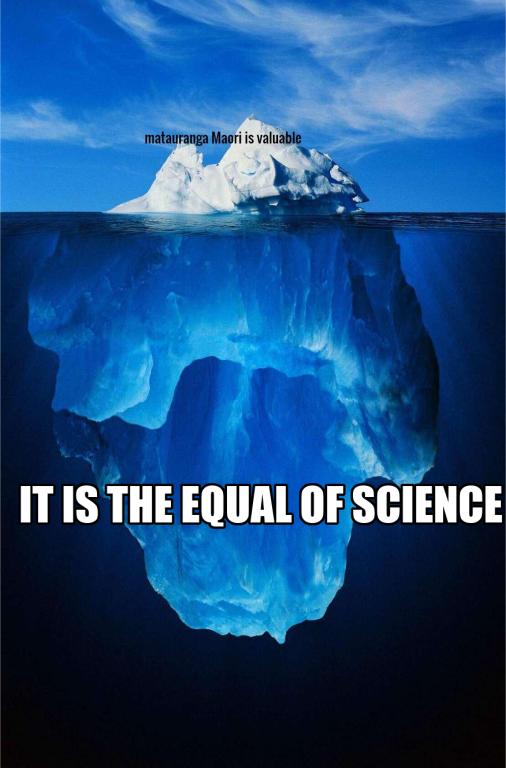Table of Contents
The stoush over whether matauranga Maori should be taught in the school NCEA science syllabus — sparked by a letter to the Listener by seven emeritus professors last July who asserted that indigenous knowledge isn’t scientific — has reached a stalemate.
The Royal Society Te Aparangi has extricated itself from what would have been a very messy investigation of two of the professors who were Fellows by determining a full disciplinary investigation against them shouldn’t proceed. And the pair under investigation — Professors Garth Cooper and Robert Nola — have subsequently resigned from the society.

One of the seven professors who was also a Fellow of the society, Michael Corballis, has died and the others have largely kept a low public profile.
Nevertheless, a great deal of damage has been done — principally to the reputation of the Royal Society NZ, whose disciplinary action brought down the wrath of celebrated scientists, including Richard Dawkins, Jerry Coyne and Steven Pinker, on its head.
The society’s unwillingness to defend science has called into question its very purpose for existing and raised severe doubts locally and internationally about the direction it is taking with its promotion of matauranga Maori as equal to science.

Dawkins certainly didn’t pull his punches. In a stinging letter sent to the society in December criticising its action (which he tweeted to his 2.9 million followers), he noted… “the frankly appalling failure of the Royal Society of New Zealand to stand up for science — which is, after all, what your society exists to do… If New Zealand’s Royal Society won’t stand up for true science who will?”
In outlining why he has resigned from the society, Professor Garth Cooper emphasised that point, among others:
“My reasons relate to its loss of understanding of the society’s raison d’être; its suppression of free speech; its failure to properly support science and science education; untoward political focus of management and governance processes; and prolonged defamation of myself and Professors Michael Corballis (now sadly deceased) and Robert Nola, by certain of its authorities.”
The “prolonged defamation” Cooper refers to is the bizarre statement the society posted on its website shortly after the Listener letter was published:
“The recent suggestion by a group of University of Auckland academics that matauranga Maori is not a valid truth is utterly rejected by Royal Society Te Aparangi. The society strongly upholds the value of matauranga Maori and rejects the narrow and outmoded definition of science outlined in the Listener letter to the Editor. It deeply regrets the harm such a misguided view can cause.”
The statement was left on its website for five months — and was not removed for several weeks after it had begun its disciplinary investigation into the two professors, as if it could then somehow still claim to be an impartial judge in their case.
The society’s statement clearly misrepresented the professors’ views — not least because the professors never said matauranga Maori wasn’t a “valid truth”. In fact, they went out of their way to emphasise it was valuable in certain areas, writing:
“Indigenous knowledge is critical for the preservation and perpetuation of culture and local practices, and plays key roles in management and policy.”
In outlining his reasons for resigning from the society, Professor Nola has pointed out:
“No evidence was ever given concerning the harm we allegedly caused. But this is also part of a view in which any harm caused by free speech, and even the extent of academic freedom, ought to lead to the curtailment of such freedoms. I regard this as an unwelcome development.”
With regard to the professors’ claim that, “Indigenous knowledge … is not science”, Nola points out that this is a contestable claim which is worthy of debate, but none was given through the Royal Society. Its response was to shut down dogmatically such discussion.
“Clearly, we had no support in advocating views about science and knowledge which were not sanctioned by the society — especially in the case where indigenous ‘knowledge’ systems are given a privileged protection immune from criticism. We are simply not permitted to say that indigenous knowledge is not a science (even though many scholars working in the field of matauranga Maori say that it is not!).
“Even if one might disagree with these views, at least support of the doctrines of academic freedom and free speech would not lead one to reject these views out of hand. In sum, I regard the website note as obnoxious, as did many who commented to me about it.”
Whether or not belonging to the Royal Society will now have the prestige it may have once had, the biggest losers in the push for matauranga Maori in schools (and throughout the tertiary education and research sector), may well be Maori students themselves.
Certainly, this is Professor Cooper’s assessment, which says:
“I signed the letter to make clear, in a public forum, my opposition and deep concern about processes now under way in New Zealand that are evidently undermining literacy, numeracy, and science literacy, particularly amongst Maori children.
“I have Maori heritage. For most children, a good education is often their best hope of improving their trajectory in life and I was raised in that belief.
“I did not experience anti-Maori bias. Real bias stems from the view that Maori can’t do things or participate fully in society because they’re Maori.
“Unfortunately, the partial substitution of matauranga Maori for international-format science education, perhaps unintendedly, is implying that limitation.”
Certainly, very few researchers or academics could be better qualified to make such an assessment given Cooper’s extensive involvement in Maori health initiatives:
”Much of my career has been focussed on kaupapa (Maori agenda) research and teaching aimed at improving Maori health care delivery and Maori science education, on marae and in hospital and medical school/university settings.
“That focus has been literal — personally designing, writing, teaching, and executing novel and successful programmes in both Maori health and education. As part of my commitment to these objectives, I served on the national Health Research Council, including six years’ service on Te Komiti Maori with further years advising on Maori health development.
“While treating many Maori in diabetes clinics, I turned my focus to kaupapa diabetes research, since this disease is a leading cause of disability and death amongst Maori. Inter alia, this work entailed visiting marae throughout the country to inform and seek endorsement of iwi.
“With much dismay, I have been witnessing a recent profound undermining of the meaning of science in New Zealand, now under way with the introduction of matauranga Maori education as having parity with sciences including mathematics, chemistry, biology, and physics.
“Matauranga Maori should be taught, as we stated in our letter, but not as part of the national science curriculum.
“The inherent bias against students in suggesting that rather than a sound grounding in mathematics, biology, chemistry and physics, there is to be parity with non-scientific systems such as matauranga Maori, will be massively counterproductive for all students, but especially biased against Maori.
“Maori are good students when they are afforded the proper opportunity to learn, and I have specific knowledge and experience of this based on my past formal roles in Maori education.
“Their right to unbiased access to optimal education, if they wish, should be protected vigorously.”
As it happens, the professors’ main motivation in writing the Listener letter was not to point out that matauranga Maori is unscientific but to object to the NCEA working party’s stance that science was an integral part of colonial oppression in New Zealand.
As Michael Corballis told Mihingarangi Forbes on the The Hui last August:
”Our main purpose was not to explain matauranga Maori. Our main purpose was to complain about the fact that kids are being taught that science is colonising and evil.”
Nola put it this way:
“The main critical target in the letter was a claim in a government NCEA working party report that science itself has been used to support Eurocentric views and colonisation (as opposed to people as agents of colonisation who might also use science). We strongly objected to this view.”
The importance of that point has largely been lost in the storm that followed the Listener letter but it’s easy to imagine how damaging and counterproductive such a view would be to Maori students who wish to study science.
Please share this BFD article so others can discover The BFD.









